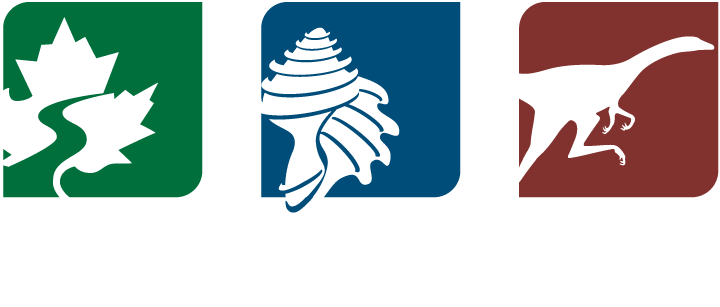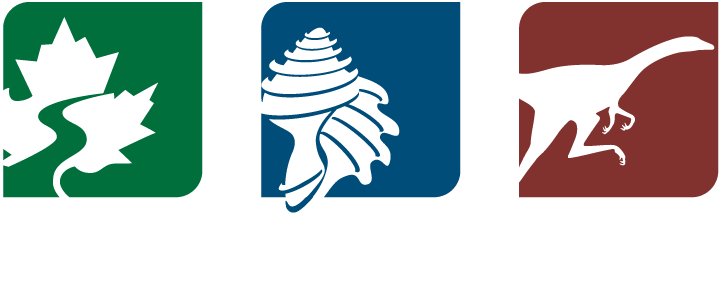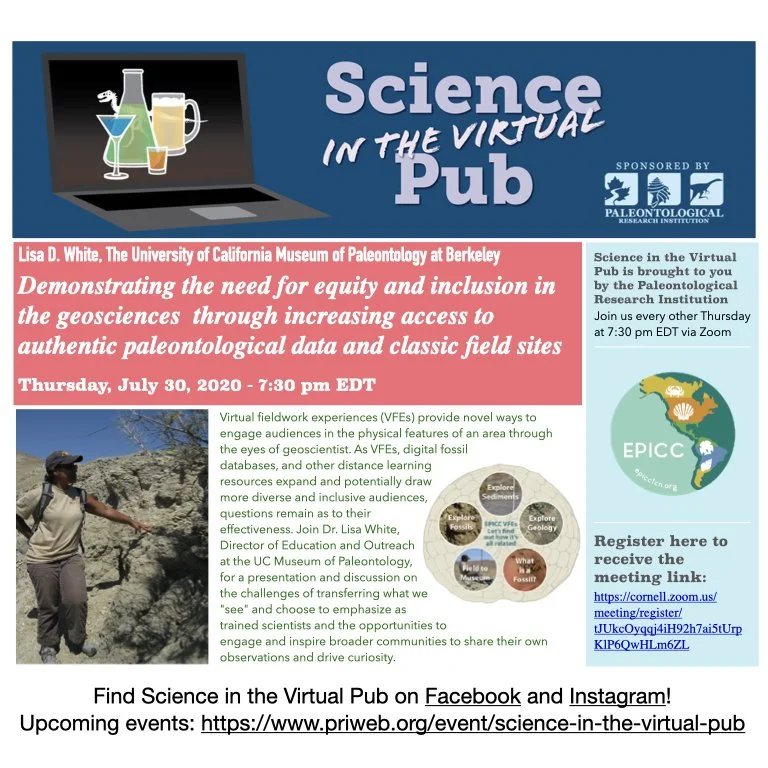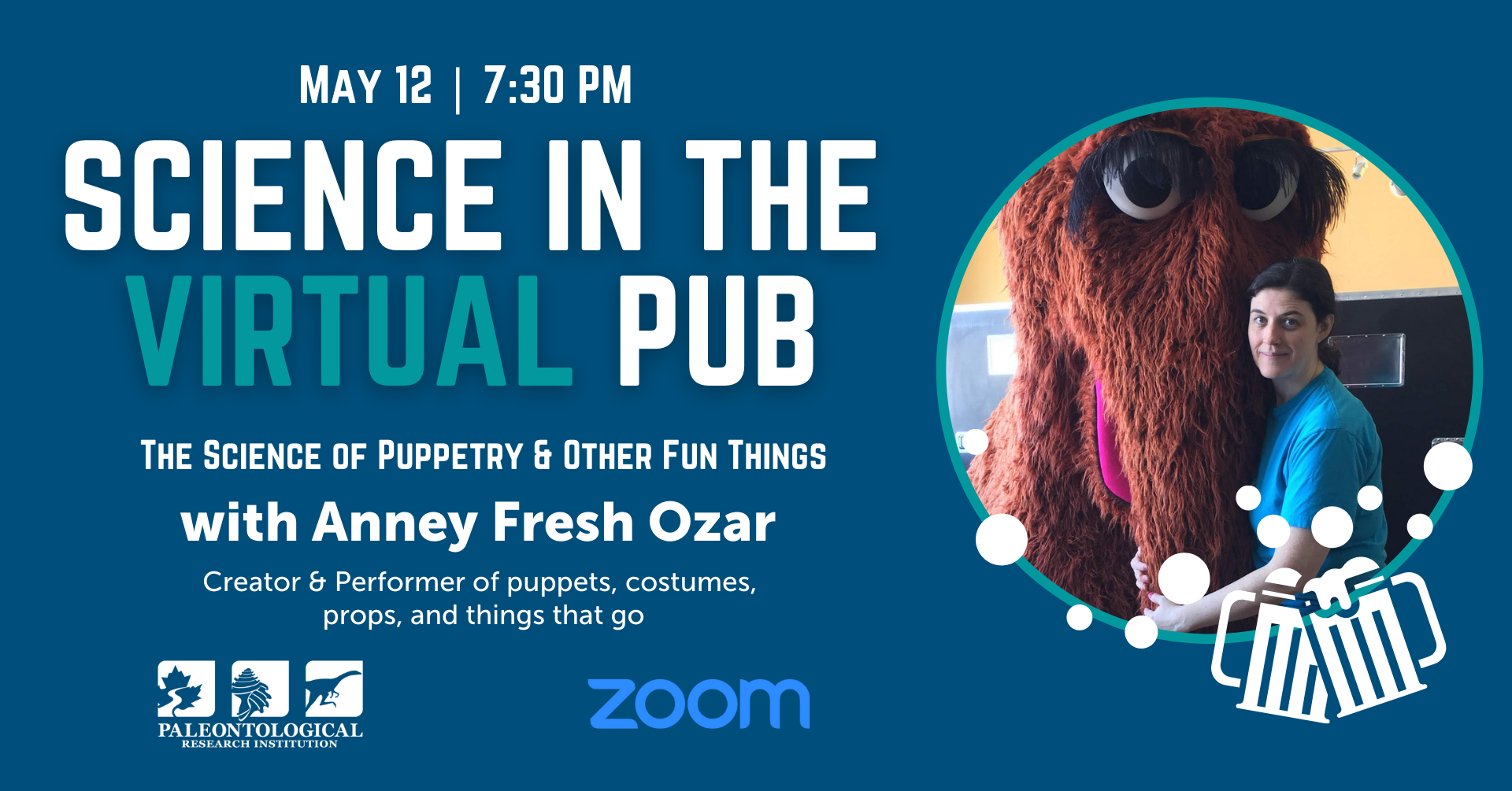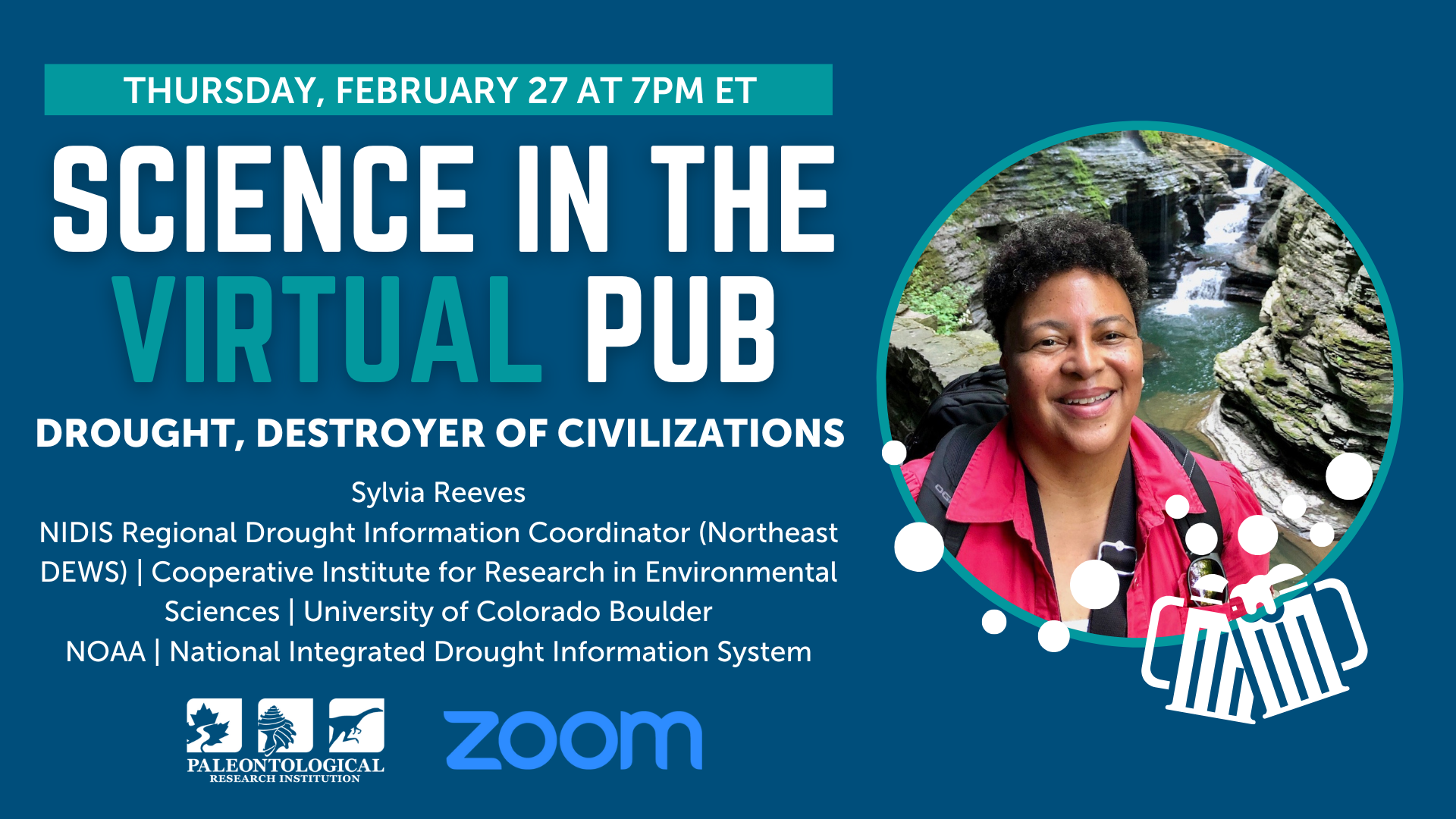Five Years of Science in the Virtual Pub!
Science in the Virtual Pub is five!
By Dr. Don Haas, Director of Teacher Programming
April 3, 2025
Note: The session titles throughout this blog post are linked to the recordings of the sessions, if available. If there’s no recording but there is a relevant website, then the link goes to that related website. The first recorded session was September 10, 2020. Most, but not all of the sessions since have been recorded.
Science in the Virtual & Actual Pub is a twice monthly program where you can grab a drink and engage in some friendly science! Join us on second and fourth Thursdays of the month at 7:00 pm Eastern from late September through early May, excepting holidays. Most session are fully virtual. Some special events will be a hybrid events, live-streamed from different locations. Find the schedule of upcoming events as well as descriptions of all past events with links to session recordings on the Science in the Virtual Pub Events Page.
All meetings are broadcast on Zoom and links to join are sent upon registration. Sessions are generally live streamed on PRI’s YouTube Channel and shared in the Science in the Virtual Pub Facebook Group, but participation in the discussion requires joining the Zoom meeting.
March 26th marked five years of Science in the Virtual Pub. It does not feel appropriate to celebrate this anniversary as what catalyzed the program was a tragedy of massive scale that left millions dead around the globe, and over a million dead in the US. Commemorating the benchmark reached does seem appropriate. In these five years, we’ve shared a lot of science and traversed the globe as well as deep time. This blog commemorates our anniversary.
The genesis of Science in the Virtual Pub
Buffalo Science in the Pub, an informal gathering to learn about science from experts in many different fields, had started just two months earlier with Stanley Radon, from New York State Department of Environmental Conservation presenting “How Native Plants Help” on January 29th at Resurgence Brewing Company’s original location on Niagara Street in Buffalo. The second session on February 26th featured Nick Henshue and “Critters in the Dirt That Aren’t Always Good,” shedding light on invasive earthworms.
Then came March of 2020. Whew.
On March 11, 2020, the World Health Organization (WHO) declared the novel coronavirus (COVID-19) outbreak a global pandemic.
On March 13, 2020, most all of us went home, and into a much different and more online world.
Buffalo Science in the Pub was the creation of Ken Zidell. Ken was a graduate student in the Seminar in Informal Science Education class I taught at the University of Buffalo in Fall 2019. Buffalo Science in the Pub began in January 2020, as a project for the just-finished course. We had two monthly sessions and then, in March 2020, we transitioned to an online format, and went from once a month to every two weeks. The frequency increase was intended to give folks a little more human contact in those trying times. And a little science contact too, of course.
I was both host and presenter for the first online session, the over-optimistically titled, “Reinventing the Educational System in a Time of Disruption.” We did not reinvent the system, but we have gotten better at certain things. While the session wasn’t recorded, the presentation is here (and I think it holds up pretty well).
Ken and I co-managed the series for over a year, and I eventually took over the main duties. In 2020, we met every two weeks from that first session until finally taking a break for the holidays after the University of Calgary’s Glenn Dolphin with “Our Theory of the Earth: A Brief Biography” on December 17, 2020.
ReinventED - Science in the Virtual Pub’s education system’s cousin
In the beginning of the pandemic, Science in the Virtual Pub (SitVP) alternated Thursdays with ReinventED, a series of discussions on how to improve education in the spirit of not letting a crisis go to waste. ReinventED was launched by the first SitVP session. The same link was used for both series.
On May 28, 2020, ReinventED had our only experience of Zoom-bombing in either series and it was awful. We quickly shut down the meeting and sent a new meeting link and recommenced in short order. That also led to requiring registration to attend beginning with the June 4, 2020 session, "The Mating Game: The Secret Sex Lives of Local Wildlife" with Dayna Jorgenson. (Is it ironic that the pornographic Zoom-bombing led to tighter security for a talk on sex lives?) The talk was fascinating and not pornographic!
ReinventED lasted over a year with rich, bi-weekly discussions, until May 27, 2021. Our penultimate session on May 13 was a reflection with Sue Ellen Lyons, drawing comparisons between New Orleans schools recovering from Hurricane Katrina and all of us recovering from the pandemic. We closed with an online goodbye party on May 27th.
The advertising graphic for the penultimate ReinventED session.
What scientific ground have we covered?
Science in the Virtual Pub (SitVP) has covered a broad range of topics in our first five years, with the most common emphases on climate change and evolution, but also including such diverse topics as the history of indigo; the science of puppetry; the social lives of ants; the sex lives of animals, and much more! We’ve also been around the globe with a couple of international presenters, the University of Calgary’s Glenn Dolphin with “Our Theory of the Earth: A Brief Biography” and, Shaban Lutaaya with “Climate Change in Uganda.” We’ve also ventured off of planet Earth with “Perseverance, Ingenuity, and the Search for Life on Mars,” presented by Zoe Learner Ponterio, Manager, Spacecraft Planetary Image Facility, Cornell University. And, of course, we’ve traveled through time, with Devonian Fishes! Darwin Days Panel, and The Late Devonian Mass Extinction: the view from New York, for two examples. There are many more - at least eight sessions addressed extinction! Aren’t we cheery!
We have had a few laughs along the way, most conspicuously with A Scientist walks into the virtual pub… how stand-up comedy and storytelling can break the science-communication paradox presented by Dr. Danielle L. Eiseman, Visiting Lecturer, Department of Communication, Cornell University.
As a pub-based program, we’ve also explored intoxicants more than once. Dr. Bob Johnson, Hop farmer and former biology professor spoke about The art and science of malting. Katie Bagnall-Newman, Associate Director for Nature Center Programs, The Paleontological Research Institution, addressed the science of maple sugaring and more with, Introduction to The Maple Syrup Making Process & Delicious Cocktail Recipes, and Dr. Carlyn Buckler, Associate Professor of Practice, School of Integrative Plant Science Horticulture Section, Cornell University presented The Biology, Society and Industry of Cannabis.
Science in the Virtual Pub by the numbers
First Buffalo Science in the Pub: January 29, 2020 - “How Native Plants Help,” with Stanley Radon, New York State Department of Environmental Conservation
First Science in the Virtual Pub: March 26, 2020 - “Reinventing the Educational System in a Time of Disruption” with Dr. Don Haas, Director of Teacher Programming, The Paleontological Research Institution
First recorded session: September 10, 2020 - “Indigo, a Story of Craft, Religion, History, Science, and Culture” by Dr. Roald Hoffmann, Emeritus Professor, Cornell University
We’ve had 2366 registrations since June of 2020 (as of March 26, 2025).
The April 10th session will be the 92nd.
There are 77 recordings as of March 31, 2025.
Record attendance for a single session is 122 for Fishing for the faults that make the biggest earthquakes with Dr. Geoffrey Abers, William and Katherine Snee Professor in Geological Sciences, Cornell University on March 13, 2025
The 100th session is expected to be December 11, 2025.
You can review the entire series presenters, titles, and descriptions on the Science in the Pub events page.
Most of the sessions since have been live streamed, first on Facebook Live, and then on YouTube Live. The switch was made to allow access to folks without Facebook accounts. The 29 sessions on Facebook will be ported to YouTube before Facebook begins removing old live streams in July of 2025.
A few of the early recordings had technical problems. These became less common as we learned the ropes, and as the technology became more user-friendly.
A wordcloud of the most commonly used words in Science in the Virtual Pub talk titles. “Climate” was the most common - more common than “science!”
Why is there so much attention to climate change?
Climate change has been our most frequent topic with at least 26 sessions addressing the topic, frequently with attention to climate change and energy education. The first was in July of 2022 with Karin Kirk of Yale Climate Connections and her talk “I'm ashamed I believed this stuff’ - Insights from people who changed their minds about climate change.” Why have we given this so much attention? The most obvious reason is that we believe understanding climate change is profoundly important. We are in a climate emergency!
PRI’s response to the climate emergency takes many forms. Perhaps the most important was the establishment of The Center for Climate Change Education at PRI in the fall of 2024. PRI’s efforts in climate change education have been growing over the course of many years. Establishing the Center was intended to make it clear that this is an important part of our work. See the press release about the opening of the Center here.
All members of PRI’s Climate Team have presented in Science in the Virtual Pub. Dr. Ingrid Zabel, PRI’s Climate Change Education Manager presented, “Fun with maps and data from the New York Climate Change Science Clearinghouse.” Technical problems prevented recording of the session, but you can explore related resources here. Dr. Alexandra Moore, PRI’s Senior Education Associate, shared “Kitchen Climate Science: Expanding Hands-On Engagement in a Hands-Off Environment.” Rob Ross, PRI’s Associate Director for Outreach, presented “Sharing field study of the end-Cretaceous mass extinction: Making a virtual fieldwork experience.” I have presented several times and most of these sessions have been focused on climate change and energy with attention to how to teach related concepts. This includes, “Fear is our Best Hope: Moving from Climate Anxiety to Climate Action;” “When we change how we get energy, we change history;” and “Fire!;” as well as moderating several panel discussions addressing climate change and climate change education.
Those panels included:
The Climate Change Education Panel featured teachers, professors and students. The slides, which include links to some of the resources shared, are here. The chat file is here, with many more links.
How to Drive Electric A panel of EV Drivers sharing practical insights learned from a year or more behind the wheel of their EVs.
The Electric Grid & the Energy Transition Panel Discussion with Janelle Bourgeois, NYSEG; Anne Rhodes, Community Energy Educator, Cornell Cooperative Extension Tompkins County (CCETC); Guillermo Metz is the Energy & Climate Change Team Leader, CCETC
How are we preparing teachers to teach about climate & energy? With Alexa Schindel, The University at Buffalo; Beth Klein, SUNY Cortland; Tammie Peffer, Lehigh University; and Regina Toolin, University of Vermont
Town Hall on Climate Change Education Legislation in New York State with panelists from the Climate & Resilience Education Task Force
Unlocking the Oceans’ Mysteries with the JOIDES Resolution with alumni and staff from the School of Rock.
Evolution & Paleontology
Of course a program from the Paleontological Research Institution will give due attention to evolution and paleontology. For many years, PRI has hosted Darwin Days every February near Darwin’s February 12th birthday. In 2020, that was one of the last large public programs before the world shut down.
Darwin Days events on Science in the Virtual Pub include:
In February 2021, PRI’s Director Dr. Warren Allmon presented Evolution in the Time of Covid and Climate Change.
In 2022, Dr. Jason J. Dombroskie, Manager, Cornell University Insect Collection (CUIC) & Coordinator of the Insect Diagnostic Lab (IDL) shared, Moth vs predator: 1000 ways to die, 1001 ways to survive
The University of Buffalo’s Dr. James Boyle; Dr. Robert Carr, emeritus professor from Concordia University Chicago; and Dr. Jennifer Olori of SUNY Oswego served as panelists in 2023 for the Devonian Fishes! Darwin Days panel discussion.
Dr. Jason R. Wiles, Associate Professor of Biology, Syracuse University presented What Darwin Can Teach Us about Today’s Students, and Where Are We on Teaching Today’s Students about Darwin? For 2025’s Darwin Days.
The Darwin Days programming is just a part of how evolution and paleontology have been a part of Science in the Virtual Pub. Search the events page for “paleontology” and you’ll get 19 hits. “Evolution” brings 15 hits. “Darwin” gives eight.
Diversity, Equity, & Inclusion in the Virtual Pub
In addition to a major focus on climate change, we have also given attention to diversity, equity, and inclusion (DEI) in science and in education. And, a fair amount to evolution as well. Why are we doing so many things that are seen as very controversial in some circles? We could certainly still have interesting conversations about science without so much controversy. We do these things, and will continue to do these things, because they are important!
Presenters in the Virtual Pub represent a wide range of diverse backgrounds and perspectives and will continue to do so. It’s worth considering that the opposites of diversity, equity, and inclusion are uniformity, inequity, and exclusion. Those are not the values we represent, and those values are quite simply horrible for the scientific enterprise.
The graphic to advertise “Demonstrating the need for equity and inclusion in the geosciences through increasing access to authentic paleontological data and classic field sites,” with Dr. Lisa White on July 30, 2020. The session was before we began recording.
Hopefully all sessions respect DEI issues. Some sessions explicitly called out addressing DEI in science education. These include:
Demonstrating the need for equity and inclusion in the geosciences through increasing access to authentic paleontological data and classic field sites
Racism is a Public Health Crisis - updates on urban health in the United States
A few favorites
A favorite connection is that several sessions have had either the presenter’s parents or the adult children or other relatives in the audience. I just found that sweet. The feeling of community in the first year of the program and the pandemic was also especially sweet to me. That’s a couple of general favorites. What follows are some specific favorites.
Most respectful of why we went virtual:
Dr. David Margolius, who is now the Director of Public Health for the City of Cleveland, has joined us three times. In the first in January of 2021, David shared, “Tales from the COVID-19 Hotline,” where he shared stories from the frontlines of the pandemic. He returned a year later for an update with, “Caring for COVID Patients: Perspective From Primary Care.” David’s third visit in January 2023 shifted away from the Covid pandemic to, “Racism is a Public Health Crisis - updates on urban health in the United States.”
This also was a favorite in the general ways noted above. David is my nephew and the audience for all three (I believe) included my siblings, siblings-in-law and my Aunt Mildred. Glancing at those videos tugged at the heartstrings as both my Aunt Mildred Allen and my brother-in-law Pat Scopelliti made appearances on camera. They both died in January of this year.
The promotional graphic for Dr. David Margolius’s first appearance on Science in the Virtual Pub.
Most fun:
I have enjoyed every single one - no lie! There are a few that I especially enjoyed. Perhaps my favorite was “The Science of Puppetry & Other Fun Things” with Anney Fresh Ozar, Puppets, Costumes and things that go. I loved everything about this session. At the time, Anney had already won five Daytime Emmy Awards for her work with Muppets. She’s won at least one more since then, most recently for Costume Design/Styling for Fraggle Rock: Back to the Rock with the talented team from Jim Henson Co. She was also one of my high school students a long time ago.
The promotional graphic for Anney Fresh Ozar’s appearance on Science in the Virtual Pub.
Prettiest:
That’s a three-way tie between Making Flakes: The Art of Snowflakes with Douglas Levere, Snowflake Hunter; The Power of iNaturalist with Brandon Woo, Cornell University Alumnus; and Conservation of the Blaschka Glass Models: Treatment of Complex Construction Materials with Stephen Koob, Chief Conservator Emeritus, The Corning Museum of Glass. Visit the related exhibit: Fragile Wonders: Blaschka Glass Invertebrates
A screengrab of Doug Levere and one of his beautiful snowflake images.
A screengrab of one Brandon Woo’s amazing insect photos.
The advertising graphic for the Fragile Wonders: Blaschka Glass Invertebrates exhibit now on display at The Museum of the Earth in Ithaca, and online. The exhibit was the focus of Stephen Koob’s presentation, Conservation of the Blaschka Glass Models: Treatment of Complex Construction Materials .
Best Guest Host
My friend and colleague Rob Ross covered in my absence twice, for his own session, “Sharing field study of the end-Cretaceous mass extinction: Making a virtual fieldwork experience,” and, “Dinosaurs, Dragons, and Dragonite: Paleontology and Storytelling” with Gabriel-Philip Santos, MSc, Director of Visitor Engagement and Education, Raymond M. Alf Museum of Paleontology. Since he joined us on Science in the Virtual Pub, Gabriel has added Cohost of PBS Eons podcast to his list of duties. I learned from this session that Gertie the dinosaur was the first animated cartoon! In 1914! He gave a great overview of dinosaurs in popular culture over time, as well as the intersection of art and science.
A screengrab of Rob Ross raising the question, “Why there are sand dollars in the desert?” from the Kettleman Hills of Central California Virtual Fieldwork Experience.
Best Title
My favorite title so far is: Drought, Destroyer of Civilizations with Sylvia Reeves, NIDIS Regional Drought Information Coordinator (Northeast DEWS), Cooperative Institute for Research in Environmental Sciences, University of Colorado Boulder, NOAA, National Integrated Drought Information System. Sylvia also had the most affiliations of any speaker so far! The title is a favorite because it’s both tantalizing and clear. From the title, you know what it’s about and you want to learn more. Clicking the title will take you to the recording. The slides are available here.
The promotional graphic for Sylvia Reeve’s appearance on Science in the Virtual Pub.
A few lessons learned
Getting people to talk about their specialty is really pretty easy. For the first few years, most speakers were people I knew personally or had seen speak. I always presenters speak about what they most want to speak about, though sometimes I would extend an invitation to speak on some particular topic I knew they were interested in. That strategy I think works well to get interesting talks, but sometimes it might not lead to the most interesting titles. I am more likely now to suggest changes to titles to make them more engaging and to cut overly technical vocabulary.
A favorite general question to ask is some version of, “How did you end up interested in this?” Many folks enjoy sharing how they ended up where they are, and it often involves interesting twists and turns. Some people end up doing things pretty far away from what they wanted to do as little kids. Other people end up being paleontologists! The question doesn’t always get asked. Sometimes there just isn’t time, and sometimes I simply forget.
Virtual is a lot simpler than in person which is simpler than hybrid. We do intend to occasionally have hybrid sessions, but it looks like the 2024-2025 programming won’t include any of them. The key reason is simple: broadcasting from a bar is complex (if you want everyone to have good audio quality) and broadcasting from in front of your computer is simple in the modern world. Doing a session in person while also broadcasting on Zoom is doable, but maintaining good audio for both audiences takes some additional technology as well as an event venue that is relatively quiet except for your event’s sounds.
Loopback software for Mac helped us eliminate a lot of the feedback and made for reasonable good audio while amplifying in the bar and broadcasting on Zoom. For me, it took some trial and error and therefore some time to get it working properly, and, if there is a lot of background noise in the pub either your in person audience or your online audience (or both) are likely to have trouble hearing your presenter.
Help from colleagues makes things run smoothly. Initially, Ken Zidell helped with publicity and logistics. As we got further into the pandemic and started livestreaming, my PRI colleagues, especially Ingrid Zabel and Rob Ross, helped manage the technology, especially with broadcasting on YouTube Live. It is possible for one host to do all the button-pushing and so forth, but, at least if it’s me doing that, it loses a few marks due to fumbling.
Early in the program, I created a Google Doc of Information for Presenters and I update it from time to time with new lessons learned. It’s written to be skimmable. The highlighted, You will need to register to get the Zoom link of course arose from a couple of presenters missing that (and my failure to check in a timely manner) and not having the link at showtime. I do ask presenters to sign on at least ten minutes before the start. If you’ve never presented a PowerPoint on Zoom, do a test run first, especially if you like using presenter view. Dealing with this is not complicated, but you want to figure out more than a few minutes before the session begins!
Planning ahead is good. Getting speakers lined up has gotten easier over time. For the first couple of years, speakers were often lined up just a month or so before the sessions they spoke in. Now I’m more able to get the slate complete before the semester begins. One speaker is set for the fall, Sol M. Gruner, John L. Wetherill Professor of Physics Emeritus from Cornell University; will present, “Upending Assumptions About Life on Earth.” This, by the way, is another excellent title.
The promotional graphic for Dr. Sol Gruner’s appearance on Science in the Virtual Pub coming in November 2025.
Fall 2025 will also bring Science in the Virtual Pub’s 100th session. We know we’ll do something special to mark the event on December 11, 2025, but we don’t know exactly what that will look like. If you have suggestions for how to commemorate that special event, drop me an email at haas@priweb.org.
Some thank yous!
The biggest thank you goes to all the presenters over the years. As several sessions were panels, that’s over 100 people! And, of course it would be impossible to have done this without them! It also wouldn’t be possible without the help and the blessings of my PRI colleagues, especially the members of PRI’s Climate Team (Rob Ross, Ingrid Zabel, and Alexandra Moore) who I regularly consult with on content, speakers, and logistics. And of course huge thanks to Ken Zidell for starting the whole thing!
And, thank you, of course to the people who attend! Join us on the second and fourth Thursdays of the month at 7pm Eastern from late September to early May. Again, you can see what’s coming up as well as find descriptions and recordings on the Science in the Virtual Pub events page!
